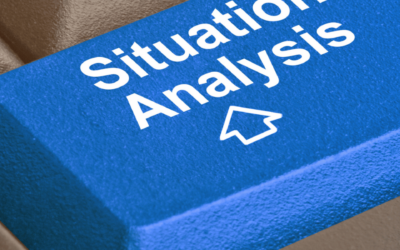As you prepare for the Bank of England’s Situational Judgement Test, you’ll quickly realize it’s more than just a standard assessment. You’re about to face realistic workplace scenarios that’ll challenge your decision-making skills and align with the Bank’s core values. It’s not just about choosing the right answer; it’s about understanding the nuances of each situation and considering long-term implications. You might think you’re ready, but are you truly prepared to navigate the ethical dilemmas and leadership challenges that await? The key to success lies in mastering specific strategies and avoiding common pitfalls that trip up many candidates.

Understanding the SJT Format
Before diving into the specifics, it’s crucial to grasp the format of the Bank of England’s Situational Judgement Test (SJT).
The SJT presents you with realistic workplace scenarios you might encounter at the Bank. For each scenario, you’ll be given multiple-choice options on how to respond or act.
You’ll need to select the most appropriate course of action based on the Bank’s values, competencies, and best practices. The test doesn’t just assess your knowledge but evaluates your decision-making skills and alignment with the Bank’s culture.
Typically, you’ll face 15-20 scenarios, each with 4-5 response options. You’ll have about 30-40 minutes to complete the test, so time management is key.
Some questions may require you to rank the responses from most to least effective, while others ask you to choose the best and worst options.
Key Competencies Assessed
You’ll encounter scenarios that test your leadership and decision-making skills in the Bank of England’s Situational Judgement Test.
These situations will challenge you to demonstrate how you’d guide teams and make tough choices under pressure.
Additionally, you’ll face questions designed to assess your ethical conduct, evaluating your integrity and ability to navigate complex moral dilemmas in a professional setting.
Leadership and Decision-Making
When facing the Bank of England’s situational judgement test, you’ll encounter scenarios designed to assess your leadership and decision-making skills. These competencies are crucial for roles within the central bank, where you’ll often need to guide teams and make critical choices under pressure.
To excel in leadership scenarios, demonstrate your ability to inspire and motivate others, delegate tasks effectively, and foster a collaborative environment. Show that you can adapt your leadership style to different situations and team dynamics.
For decision-making, focus on your analytical skills and ability to weigh multiple factors. Showcase your capacity to gather relevant information, consider various perspectives, and make well-reasoned choices. Highlight your ability to act decisively, even in ambiguous situations.
Remember to consider the long-term implications of your decisions and their alignment with the Bank’s goals. Demonstrate ethical judgment and a commitment to maintaining the institution’s integrity. Be prepared to justify your choices and show how they balance competing priorities.
Ethical Conduct Assessment
How does the Bank of England assess ethical conduct in its situational judgement test? The test presents you with scenarios that challenge your moral compass and decision-making skills.
You’ll encounter situations involving conflicts of interest, confidentiality breaches, and potential misconduct.
The Bank of England looks for candidates who can identify ethical dilemmas, understand the implications of their actions, and make sound judgments aligned with the organization’s values.
You’ll need to demonstrate integrity, transparency, and a commitment to upholding professional standards.
Key areas of focus include:
- Recognizing and addressing conflicts of interest
- Maintaining confidentiality and data protection
- Reporting misconduct or unethical behavior
- Adhering to regulatory requirements and compliance standards
- Promoting a culture of integrity and ethical conduct
To excel in this assessment, you must show that you can navigate complex ethical situations, make decisions that prioritize the Bank’s reputation and public trust, and communicate your reasoning clearly.
The Bank values candidates who can balance competing interests while maintaining the highest ethical standards in their professional conduct.
Common Scenario Types
You’ll encounter various scenario types in the Bank of England’s situational judgement tests.
These often include team conflicts and resolutions, ethical decision-making situations, and crisis management scenarios.
Understanding these common scenario types will help you prepare effectively and respond appropriately during the assessment.
Team Conflicts and Resolutions
Numerous team conflict scenarios frequently appear in the Bank of England’s situational judgement tests.
These scenarios often involve disagreements between team members, conflicting priorities, or communication breakdowns. You’ll need to demonstrate your ability to handle these situations diplomatically and effectively.
When faced with team conflicts, focus on active listening and understanding each party’s perspective. Encourage open dialogue and create a safe space for team members to express their concerns.
Identify common ground and shared goals to help bridge differences. You may need to mediate discussions, summarize key points, and guide the team towards a mutually beneficial solution.
In some scenarios, you might encounter a team member who’s not pulling their weight or causing disruptions.
Address these issues promptly and privately, focusing on specific behaviors rather than personal attacks. Offer support and resources to help improve performance, but also be prepared to escalate the matter if necessary.

Ethical Decision-Making Situations
Ethical dilemmas form a crucial part of the Bank of England’s situational judgement tests.
You’ll encounter scenarios that challenge your moral compass and test your ability to make sound decisions in complex situations. These may include conflicts of interest, confidentiality breaches, or potential policy violations.
Common ethical scenarios you might face involve:
- Witnessing a colleague’s misconduct
- Handling sensitive information
- Balancing personal relationships with professional duties
- Addressing potential conflicts of interest
- Dealing with pressure to compromise standards
To excel in these situations, you’ll need to:
- Identify the ethical issue at hand
- Consider all stakeholders involved
- Evaluate potential consequences of each action
- Align your decision with the Bank’s values and policies
- Demonstrate integrity and professionalism
Crisis Management Scenarios
While ethical dilemmas test your moral decision-making, crisis management scenarios assess your ability to handle high-pressure situations.
These scenarios often involve unexpected events that could significantly impact the Bank of England’s operations or the broader financial system.
You’ll likely encounter scenarios involving market volatility, cyber attacks, or sudden economic downturns. Be prepared to demonstrate quick thinking and decisive action.
You may need to prioritize tasks, allocate resources, and communicate effectively with stakeholders.
When faced with a crisis scenario, start by gathering essential information and assessing the situation’s severity.
Identify potential risks and consequences, then develop a clear action plan. Consider both short-term and long-term implications of your decisions.
Effective communication is crucial during crises.
You’ll need to show how you’d keep relevant parties informed, manage public perception, and maintain confidence in the financial system.
Effective Decision-Making Strategies
Decision-making lies at the heart of excelling in the Bank of England’s situational judgement tests. To master this crucial skill, you’ll need to develop a systematic approach.
Start by clearly identifying the problem at hand and gathering all relevant information. Don’t rush to conclusions; instead, take time to analyze the data and consider multiple perspectives.
Next, generate a range of potential solutions. Be creative and think beyond obvious answers. Evaluate each option carefully, weighing its pros and cons against the Bank’s objectives and ethical standards.
Consider both short-term and long-term consequences of your decisions. When you’ve narrowed down your options, trust your judgment but remain open to input from colleagues.
The Bank values collaborative decision-making, so don’t hesitate to seek advice when appropriate. Once you’ve made a decision, commit to it fully and be prepared to explain your reasoning.
Time Management During the Test
Time pressure is a significant factor in the Bank of England’s situational judgement tests. You’ll need to manage your time effectively to complete all questions within the allotted timeframe.
Start by quickly reading through all scenarios and questions to get an overview of what’s ahead. This will help you allocate your time wisely.
Prioritize questions based on their difficulty and your confidence in answering them. Tackle easier questions first to build momentum and secure points. For tougher questions, don’t spend too much time deliberating; make an educated guess and move on.
Keep an eye on the clock throughout the test. If you’re falling behind, adjust your pace accordingly. Don’t panic if you’re running out of time; it’s better to attempt all questions than to leave some unanswered.
Practice time management strategies before the actual test. Use sample tests to familiarize yourself with the format and timing.
Set personal time limits for each question and stick to them during practice sessions. This will help you develop a sense of pacing that you can apply during the real test.
Preparing With Practice Questions
Practice makes perfect when it comes to the Bank of England’s situational judgement tests. To excel, you’ll need to familiarize yourself with the types of scenarios and questions you’re likely to encounter. Start by sourcing high-quality practice questions that closely mirror the actual test format. Many online resources offer free or paid practice tests specifically designed for the Bank of England’s assessments.
As you work through these questions, focus on understanding the underlying principles and values that guide decision-making in a central bank environment. Pay attention to ethical considerations, teamwork dynamics, and professional conduct.
Don’t just memorize answers; instead, develop a systematic approach to analyzing situations and weighing different options. Time yourself during practice sessions to improve your speed and efficiency.
After each practice test, review your answers carefully, especially those you got wrong or found challenging. Reflect on your thought process and identify areas for improvement. Consider forming a study group with other applicants to discuss different perspectives and approaches.
Avoiding Common Pitfalls
Even the most prepared candidates can fall into traps during the Bank of England’s situational judgement test. To avoid these pitfalls, you’ll need to stay vigilant and approach each question strategically.
First, don’t rush through the scenarios. Take your time to fully understand the context and nuances of each situation. Skimming can lead to misinterpretation and incorrect responses.
Second, avoid letting personal biases influence your decisions. The Bank of England is looking for objective, policy-driven judgments, not personal preferences.
Watch out for extreme options. The most appropriate response is often balanced and considers multiple perspectives. Don’t be swayed by choices that seem overly aggressive or passive.
Additionally, resist the urge to choose answers based on what you think the Bank wants to hear. Instead, focus on selecting responses that align with the organization’s values and ethical standards.
Lastly, don’t overthink or second-guess yourself excessively. While it’s important to consider each option carefully, trust your initial instincts if they’re grounded in sound reasoning.
Post-Test Reflection and Improvement
After completing the Bank of England’s situational judgement test, you shouldn’t simply move on. Instead, take time to reflect on your performance and identify areas for improvement. Review each scenario you encountered and consider alternative approaches you could have taken. Ask yourself if you fully understood the context and if your chosen responses aligned with the Bank’s values and expectations.
Analyze any patterns in your decision-making process. Did you consistently prioritize certain factors over others? Were there situations where you felt particularly confident or unsure? This self-assessment can reveal valuable insights into your strengths and weaknesses.
Seek feedback from peers or mentors who’ve experience with similar tests. They may offer fresh perspectives on your approach and suggest strategies for improvement. Additionally, research the Bank of England’s core competencies and values to better align your future responses with their organizational culture.
Consider retaking practice tests to measure your progress and reinforce your learning. Focus on scenarios that challenged you previously, and experiment with different decision-making frameworks.
Conclusion
You’ve now got the tools to excel in the Bank of England’s Situational Judgement Test. Remember, it’s all about understanding the format, honing your decision-making skills, and aligning with the Bank’s values. Practice time management, familiarize yourself with common scenarios, and don’t forget to reflect on your performance. With preparation and a strategic approach, you’ll be well-equipped to tackle the SJT and showcase your potential as a future Bank of England employee.







0 Comments